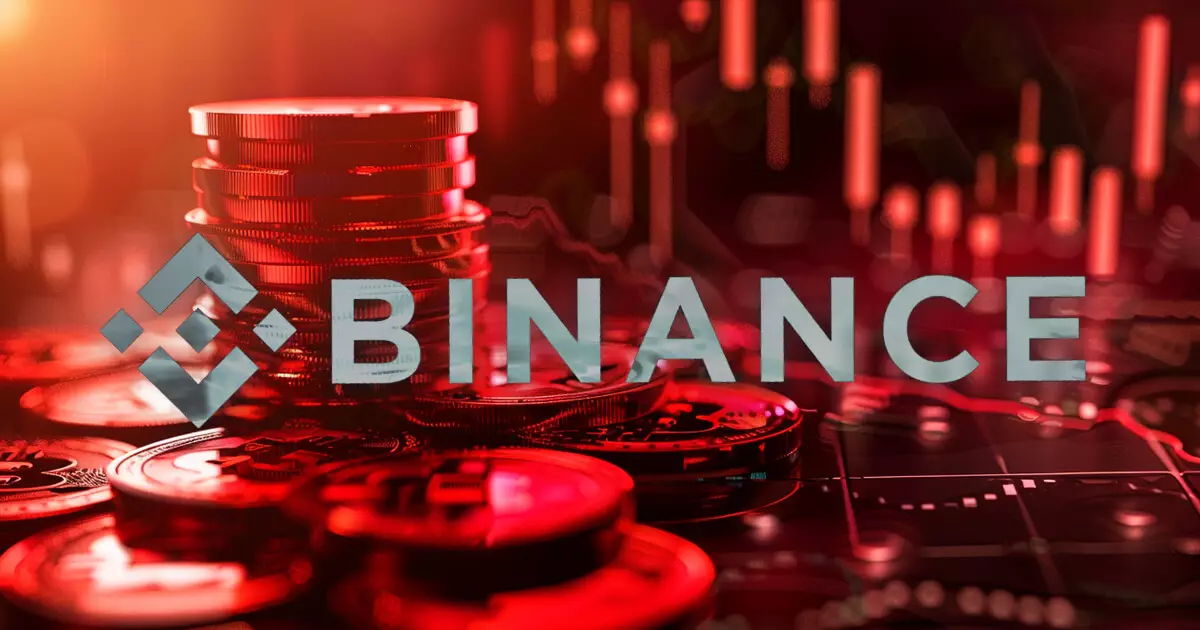The cryptocurrency landscape has been abuzz with discussions surrounding Binance’s recent decision to list two Solana-based memecoins: The AI Prophecy (ACT) and Peanut the Squirrel (PNUT). This unexpected move sparked concerns among community members about potential manipulative financial practices, including allegations of a pump-and-dump scheme. Such developments not only raise questions about the ethics of cryptocurrency exchanges but also highlight vulnerabilities that retail investors could face in a rapidly evolving market rife with speculation and risk.
Upon the listings on November 11, an extraordinary surge in value was observed. ACT skyrocketed by over 1,000%, catapulting its market capitalization to more than $400 million. Meanwhile, PNUT, which is linked to the famed internet character Peanut the Squirrel, saw its own value skyrocket by approximately 100%. These astronomical increases, as reported by CoinMarketCap, prompted discussions within the community about the underlying motivations behind Binance’s decisions. The immediate aftermath raises important questions surrounding market manipulation, especially as indicators suggest that such rapid valuation changes were not supported by any fundamental improvements in the respective projects.
Leonidas, co-founder of Ord.io, echoed the sentiments of many in the crypto community by launching a petition aimed at scrutinizing Binance’s listing practices. He voiced concerns that the exchange’s recent pattern of listing low-market-cap memecoins could be emblematic of a trend designed to benefit insiders at the expense of unsuspecting retail investors. According to him, Binance’s apparent willingness to list tokens that previously demonstrated weak market activity indicates a calculated strategy focused on acquiring substantial listing fees from these “dead” memecoins, only to later profit by selling once prices spike—leaving individual investors vulnerable to significant losses.
Leonidas argued that this strategy not only damages trust within the community but also manipulates market dynamics, leading to greater income disparity in an already uneven financial landscape. The suggestion that Binance might be facilitating unfair advantage to a select group raises ethical questions about the responsibilities of exchanges in maintaining equitable market conditions.
The Binance listing policy, previously characterized by a cautious and methodical approach, has seemingly taken a turn toward leniency. Over the past year, data shows a noted increase in the listing of memecoins, creating speculation that the exchange seeks to retain user engagement by diversifying its offerings. Loopify, a crypto game studio founder, proposed that this change might be a strategic measure to counter user migration to decentralized exchanges, which inherently reduce the role of centralized entities like Binance.
The influx of new memecoins also hints at the possibility that Binance may not be adhering to established minimum capitalization standards when evaluating potential listings, thereby prioritizing community engagement and popularity over financial stability. Such practices not only create an unstable trading environment but may also expose users to unnecessary risks.
As Binance continues to list a variety of memecoins, including many built on the Solana blockchain, the implications stretch far beyond mere profit. With 80% of the memecoins listed in 2024 experiencing notable price increases, there are distinct concerns about the sustainability of such growth, especially when many tokens are primarily based on speculative interest rather than intrinsic value.
Furthermore, as highlighted by an on-chain analyst, the prevalence of memecoins lacking robust economic backing can lead to haphazard investment behaviors, amplifying the risks associated with trading on the platform. The sheer unpredictability of memecoins, driven largely by social media trends and community sentiment, underscores the need for greater transparency and accountability from exchanges like Binance.
In light of these findings, it is imperative for Binance and similar platforms to reconsider their approach to memecoin listings. Transparency regarding listing fees and the rationale behind token selection will be crucial in restoring faith among retail investors and ensuring fair market practices. As the landscape evolves, proactivity in safeguarding user interests will not only protect individual investors but will also contribute to the long-term stability and credibility of the cryptocurrency market as a whole.














Leave a Reply